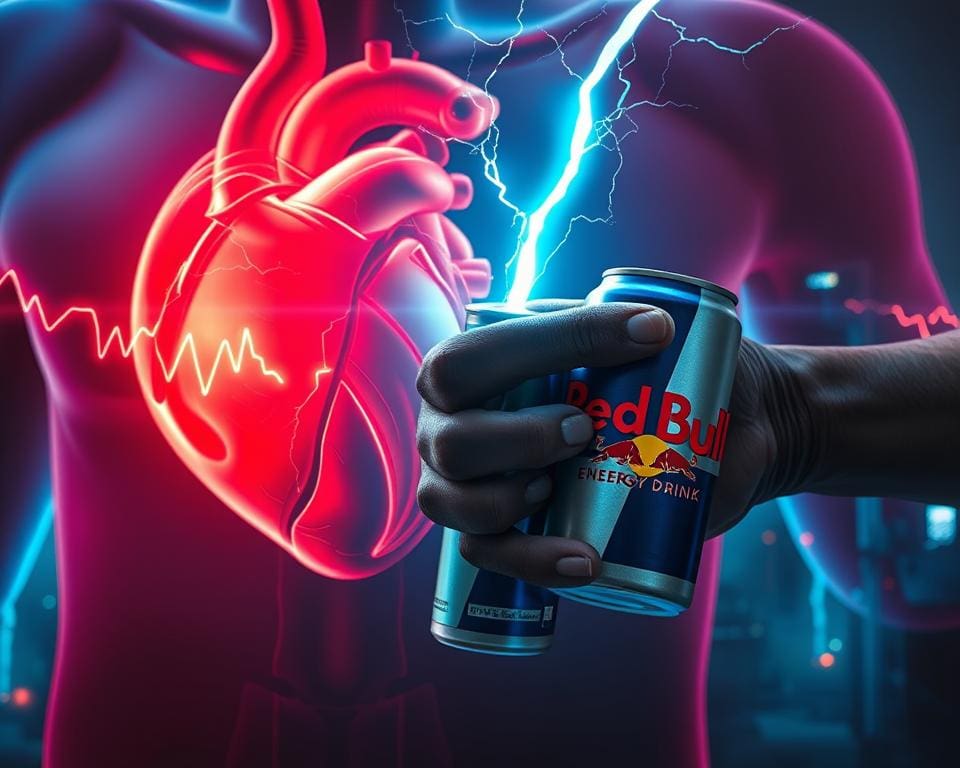The popularity of Red Bull energy drinks has surged in recent years, captivating consumers in the UK and beyond. As these beverages become a staple in the modern lifestyle, it’s essential to critically evaluate whether they truly deliver on their promises or pose potential health risks. Are Red Bull energy drinks bad for you? This is a pertinent question given the rising concerns around the health impacts of energy drinks. Studies conducted by health professionals highlight both the invigorating benefits and risks associated with their consumption. By delving into the ingredients, effects, and side effects, we can better understand the implications of these widely consumed drinks.
The Rise of Energy Drinks in the UK
The popularity of energy drinks in the UK has surged dramatically in recent years. As consumers lead increasingly fast-paced lifestyles, these beverages have become a go-to solution for a quick boost. The energy drinks market trends highlight the significant role that marketing strategies play in attracting a younger demographic, particularly students and professionals seeking an edge.

Red Bull, one of the leading brands, has significantly influenced this growing market. Red Bull sales statistics reveal that the brand has consistently outperformed its competitors, securing a robust share of the energy drink market. Surveys indicate that many consumers turn to Red Bull not just for its energising properties but also for its association with an active and adventurous lifestyle.
The appeal of energy drinks extends beyond mere consumption. They have become part of social rituals, often featured at events and gatherings. With continued innovation in flavours and formulations, the future of energy drinks in the UK appears bright, fostering an environment for ongoing growth and expansion in this dynamic sector.
Understanding the Ingredients in Red Bull
The world of energy drinks is often fascinating, and Red Bull stands out with its unique energy drink formulation. A key component of this popular beverage is caffeine, known for its ability to enhance alertness and concentration. Typically, each can contains around 80 milligrams, essential for that quick pick-me-up.
Another significant ingredient in Red Bull is taurine. This amino acid plays a crucial role in various bodily functions. Although the exact effects of taurine remain a topic of ongoing research, it is believed to support cardiovascular health and may enhance physical performance.
B vitamins are also prominent in Red Bull components, particularly B3, B5, B6, and B12. They serve vital functions in energy metabolism, aiding the body in converting food into usable energy. Their presence in the drink contributes not only to its energy-boosting promises but also serves as an additional layer to its overall formulation.
Furthermore, sugar is a key ingredient, offering an immediate source of energy. While many consumers appreciate this aspect of Red Bull, it is worth noting the potential health concerns associated with excessive sugar intake.
By understanding the ingredients in Red Bull, consumers can make informed choices about their energy drink consumption. Each ingredient plays a crucial role, weaving together to create a beverage that promises energy and vitality. This intricate blend remains an appealing aspect for many looking to revitalise their day.
Are Red Bull Energy Drinks Bad For You
The formulation of Red Bull raises important concerns regarding its health implications. Understanding the components that contribute to its energising effects is essential for making informed choices.
Caffeine Content in Red Bull
A standard can of Red Bull contains approximately 80 mg of caffeine. This level approaches the maximum recommended daily intake for adults. Regular consumption may lead to adverse effects, primarily linked to the health risks of caffeine, such as increased heart rate and anxiety. Users should be conscious of their sensitivity to caffeine and how it affects their overall wellbeing.
Sugar and Artificial Sweeteners
Each can of Red Bull contains about 27 grams of sugar, a significant quantity that contributes to the overall sugar in energy drinks. High sugar intake can lead to various health issues, including obesity and tooth decay. For those opting for sugar-free variants, the inclusion of artificial sweeteners in Red Bull often aims to provide a sweet taste without the caloric load. However, the long-term impact of ingesting these sweeteners remains a topic of debate among health professionals. Monitoring intake of both natural sugars and artificial alternatives is vital for maintaining a balanced diet.
Effects of Red Bull on the Body
The effects of Red Bull on the body present a fascinating exploration of energy levels and health implications. Known for providing a short-term energy boost, many consumers rely on this drink to enhance their alertness and focus during demanding tasks. While these immediate benefits are appealing, the potential long-term health effects of energy drinks warrant serious consideration.
Short-term Boosts vs. Long-term Consequences
Upon consuming Red Bull, individuals often experience heightened energy and improved concentration. This short-term energy boost is largely attributed to the caffeine and sugar content that stimulates the central nervous system. Such effects can be particularly beneficial when motivation is low or fatigue sets in, especially during long work hours or study sessions.
Nonetheless, the excitement of these quick jolts may conceal associated risks. Many users find that reliance on energy drinks can lead to increased fatigue once the initial boost subsides, creating a cycle of dependency as individuals seek another quick fix. Studies suggest that prolonged consumption could trigger metabolic changes, potentially leading to chronic health issues.
The long-term health effects of energy drinks extend beyond mere dependence. Frequent consumption could lead to serious concerns, affecting heart health and contributing to anxiety disorders. Awareness of these potential outcomes allows consumers to make informed choices regarding their reliance on such products.
Red Bull Side Effects to Be Aware Of
The consumption of energy drinks, particularly Red Bull, raises several concerns regarding potential side effects that individuals should consider. Awareness of these effects can help respondents make informed decisions about their intake. The interplay between energy drinks and mental health draws particular attention.
Impact on Mental Health
Many studies explore the mental health effects of energy drinks, highlighting concerns such as heightened anxiety, agitation, and difficulty sleeping. Red Bull contains significant levels of caffeine, which may contribute to these mental health issues. For some individuals, this can lead to an increased sense of stress and mental strain, resulting in a cycle of reliance on energy boosts.
Potential for Addiction
Another area of concern relates to addiction to caffeine. Regular consumption of Red Bull could foster energy drinks dependency, making individuals reliant on these beverages to function throughout the day. Withdrawal symptoms from caffeine, such as headaches and irritability, may further compound this relationship, emphasising the importance of understanding the risks associated with habitual use.
Energy Drinks Health Risks
The rising popularity of energy drinks in recent years has raised significant consumer health concerns among health experts. These beverages, often packed with high levels of caffeine and sugar, carry notable energy drinks health risks that can manifest in various ways.
Studies have consistently linked energy drinks to serious health issues such as heart palpitations, which can be particularly alarming for young consumers. Other potential dangers of energy drinks include heightened risks of diabetes and obesity, both of which are becoming more prevalent in modern society.
Specific demographics, notably adolescents, may experience adverse effects more acutely. Their developing bodies and minds are not as equipped to handle the intense stimulation these drinks provide. Additionally, individuals with pre-existing health conditions face greater dangers of energy drinks, as their bodies may react negatively to sudden spikes in caffeine and sugar intake.
Health authorities continue to debate the necessity of stricter regulations surrounding energy drinks. Many advocate for clearer labelling and age restrictions to curb consumption among vulnerable populations. Overall, understanding the health risks associated with these beverages is essential for making informed choices, emphasising the importance of moderation and awareness among all consumers.
Red Bull and Heart Health
The relationship between Red Bull and heart health warrants careful consideration, especially amid rising concerns regarding the cardiovascular risks of energy drinks. Research has indicated that the consumption of Red Bull can lead to significant changes in heart rate and blood pressure, also linking these effects to potential heart complications. Individuals with pre-existing heart conditions may face heightened risks associated with consuming such beverages.
Studies have shown that energy drinks, including Red Bull, can induce cardiac arrhythmias and exacerbate underlying cardiac issues. The impact of caffeine, combined with other stimulants in these drinks, adds another layer of concern regarding the safety of their consumption in high quantities. Understanding the specific cardiovascular risks of energy drinks is crucial in promoting awareness among consumers.
While many enjoy the boost provided by Red Bull, it is essential to acknowledge that moderation is vital, particularly for those with any heart-related health challenges. It is advised that individuals remain vigilant about their consumption habits to protect their heart health.
Red Bull Consumption Guidelines
For those considering incorporating Red Bull into their routine, following specific Red Bull consumption guidelines is vital to ensure both safety and enjoyment. Experts generally recommend limiting your intake of energy drinks to no more than two cans a day, particularly for those who may be sensitive to caffeine or have pre-existing health conditions. Being aware of the safe limits for energy drinks can help prevent unwanted side effects while still providing the boost many seek.
Integrating Red Bull into a balanced lifestyle can be achieved by timing your consumption wisely. It’s advisable to enjoy it before a demanding task or physical activity but avoid it late in the day to prevent disruptions in sleep patterns. By practising responsible energy drink consumption, individuals can harness the benefits of Red Bull while minimising potential health risks associated with excessive intake.
Ultimately, staying informed plays a crucial role in enjoying energy drinks responsibly. Pay attention to your body’s reactions, and if you experience any adverse effects, reconsider your consumption habits. Making informed choices about energy drink use will empower everyone to enjoy their benefits safely, ensuring a vibrant and energised lifestyle without compromising health.









